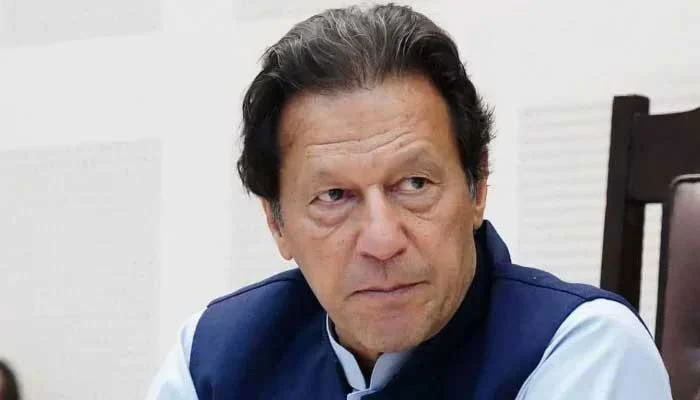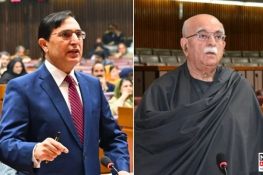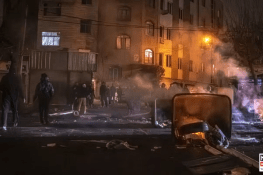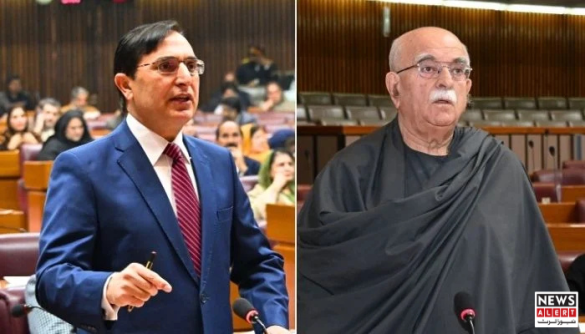Lawyers Oppose Video-Link Proceedings
A new development has emerged in the ongoing General Headquarters (GHQ) attack case being heard in Rawalpindi. Lawyers representing Pakistan Tehreek-e-Insaf (PTI) founder and former Prime Minister Imran Khan have formally challenged the decision to conduct the hearings through video link from Adiala Jail.
The defence team submitted a petition to the Anti-Terrorism Court (ATC), contending that trying Khan remotely violates his fundamental rights under Pakistan’s Constitution. According to them, such proceedings undermine transparency and the principles of a fair trial.
The petition was admitted for hearing. Prominent lawyers Faisal Malik and Barrister Ali Bukhari will present arguments before the court in the coming days.
“Fair Trial Requires Direct Consultation”
Faisal Malik, speaking to the court, stressed that Khan had instructed his legal team not to participate in video-link proceedings. He argued that a trial cannot be considered fair if lawyers are denied the opportunity to consult their client in person.
Malik added that when the government itself is a party to the case, allowing only remote hearings raises serious concerns about impartiality. “Such an arrangement compromises constitutional guarantees,” he said.
Demand for Khan’s Personal Appearance
Alongside the initial petition, the defence also filed a separate request demanding Imran Khan’s physical appearance before the court. Malik maintained that personal attendance is essential for ensuring both credibility and public confidence in the judicial process.
The defence team has also indicated its intention to challenge the Home Department’s notification authorising video-link trials before the Rawalpindi Bench of the High Court.
Security Tightened Around Court
The hearing on Thursday saw extraordinary security measures in Rawalpindi. Over 700 police personnel were deployed around the court premises. Roads from the Commissioner’s Office to the District Council gate were sealed off, while traffic diversions were implemented to manage the flow of vehicles.
Media crews, including DSNG vans, were barred from entering the restricted zone. Even lawyers faced additional checks. Inside the courtroom, judges prohibited mobile phone use and declared video recordings a punishable offence.
Restrictions on Video Transcripts
The court also placed a ban on obtaining transcripts of the video-link sessions. Defence lawyers informed the bench that Khan would refuse to appear on video if forced participation was attempted.
This hardline stance suggests that future proceedings could face disruption if the authorities continue to insist on remote hearings.
Witness Testimonies and Case Progress
The GHQ attack case, which relates to violence outside military installations during political unrest, has been ongoing for several months. According to court records, 119 witnesses have been listed, of which 27 have so far recorded their statements.
Three key witnesses have been summoned for the present round of hearings. The case is resuming after a two-and-a-half-month gap, making today’s proceedings particularly significant.
PTI Leaders Reject Video-Link Trial
PTI leaders have echoed the defence’s concerns. Khan’s sister and senior party member Aleema Khan, along with lawyer Tabish Farooq, publicly declared that the party does not recognise video-link proceedings as constitutional or lawful.
They argued that transparency in politically sensitive cases cannot be guaranteed unless the accused is brought physically before the court.
Broader Context
Imran Khan has been detained in Adiala Jail since August 2023 in connection with multiple cases, including corruption charges and allegations related to last year’s May 9 riots, when military and government buildings were attacked after his arrest.
The GHQ case remains one of the most sensitive trials, as it involves the alleged targeting of Pakistan’s top military command center. The proceedings are closely watched both domestically and internationally, given Khan’s continued popularity and the political tensions surrounding his detention.
Legal experts note that while video-link trials have been used in Pakistan to enhance security, they are rare in high-profile political cases. Human rights groups have also warned that restricting physical appearances of political leaders risks undermining the credibility of the judicial process.















